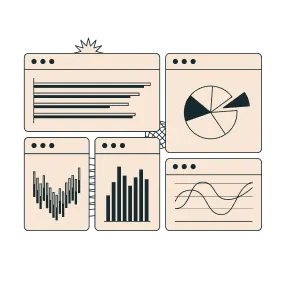
(Long: 73495828188)
Private Bank
Resources
Discover us
Choosing your banker means selecting someone whom you can trust with everything: your projects, your ideas, your doubts, your dreams...

More than a friend, a Piguet Galland private banker.
Dedicated experts in every field.

Investment
From investment advice to delegated portfolio management, we are dedicated to safeguarding your capital and securing its growth by identifying investment solutions that align seamlessly with your values, goals, and the assurance of peace of mind.

Wealth & Pension
advice
Bring vitality and success to your life projects by comprehensively analyzing your assets and optimizing their structure.

Financing
We offer various financing solutions for all your real estate projects, such as mortgages and Lombard loans.
We don’t need to make it formal: it’s up to you to choose whether you'd rather discuss your projects in the office, at a museum, or on a bike, for example.



Great Place To Work™
2025
Best Swiss Private Bank Award
2021, 2022, 2023, 2024
Best Boutique Private Bank
2024
Best Workplaces™ Switzerland
2024
Equality Award
2024
Fair-ON-Pay Advanced
2024

Our advisors live in the same place as you, which is why they can recommend investments that truly reflect who you are... just like the best restaurants
Geneva
La Chaux-de-Fonds
Rue Jaquet Droz 43
2300 La Chaux-de-Fonds
Lausanne
Neuchâtel
Nyon
Yverdon-les-Bains




Stéphane Crevoisier
Head of Private Clients, La Chaux-de-Fonds
Mountain biker in the Jura and a Liverpool FC fan
Contact me



















19.6%
Performance of the Piguet Fund Swiss Equities - SMID over 2 years (as of 28.02.2025)


91%
of our clients are satisfied with our customer service. Source: NPS 2024 study
Bcorp
Piguet Galland becomes a member of the exclusive group of BCorp-certified Swiss banks

93%
of our employees think that Piguet Galland is a great place to work. Source: Great Place to Work® Switzerland 2023
We consider the social and environmental impact of all our decisions to contribute to a fairer and more humane world.


Piguet Galland & Noémie Prod'hom

Piguet Galland & Marie-Laure Favre

Piguet Galland & M'Bayang Thiam

Piguet Galland & David Vuadens

Piguet Galland & Ann Evard

Piguet Galland & Anthony Picard

Piguet Galland & Dominique Lauener

Piguet Galland & Franck Neveu

(Long: 73495828188)

(Long: 73495828188)

(Long: 73495828188)

(Long: 73495828188)

(Long: 73495828188)

(Long: 73495828188)

(Long: 73495828188)

(Long: 73495828188)

(Long: 73495828188)

(Long: 73495828188)












